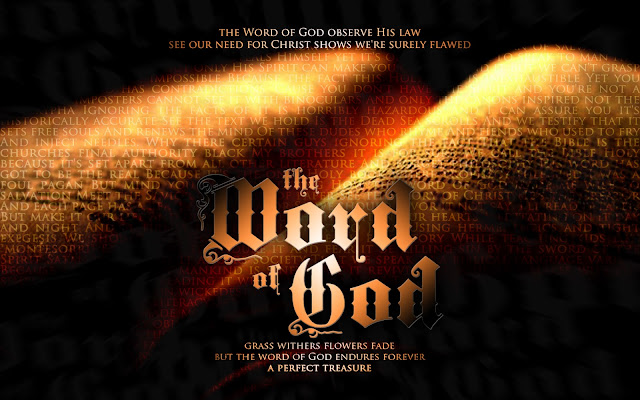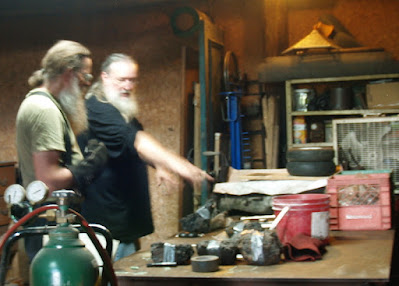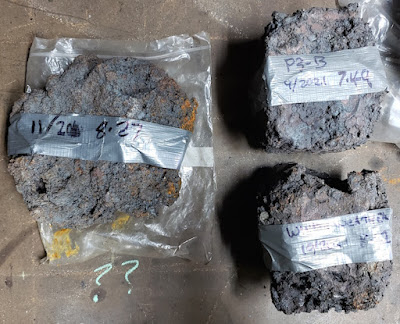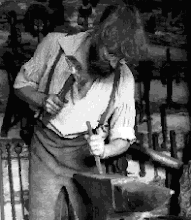I’ve
been thinking a lot lately about writing.
Not
just about stories, although those too, but about what sits behind
the stories.
How
to write. Or at the very least, how to write something that at least
I (and hopefully others) would like to read.
Of
late I have also had more time, or just plain taken more time, to
think about how the things I like to read are structured.
One
: Memories are slippery things…
Our
household had never been a big book owning one (1) As a child, we
were encouraged into
reading
with weekly visits to the Peterborough
Public Library.
This was an imposing building originally constructed and filled under
funds from Andrew
Carnegie Foundation
in 1911.
(2) I had already made serious reading inroads through the the
mythical and historical, the fairy tales and fantasy sections
available in the second floor Children’s section by the time I was
ten. (3)
There
was a short interlude that put our family into Toronto for two short
years (later 1965 to early 1968). Now divorced (believe me, punishing in Suburban Ontario in the late 1960's), my mum moved us back
to Peterborough, so I grew up on the economic short end, attempting
to hold to Canadian White-bead English Protestant Middle Class. (4)
We had a black & white television from the early 60’s that was
broken as often as not (until I learned to change tubes bought from
my paper route money). This limited pretty much to the local
Peterborough CBC and fuzzy distant Toronto stations. Occasional
American (Rochester) broadcasts, even fuzzier and howling static.
The
library was free, and believe me, we made excessive use of that,
pushing our weekly borrowing limit. ‘A book a day’ was typical.
By the time I was 14 I had consumed all
the historical, fantasy, and science fiction juveniles available.
Back then access to the Adult collection was greatly controlled, as
I
remember you had to be 16 to (or have an adult) check out a book from
that floor. My father on his departure had left behind a half dozen
‘Book of the Month Club’ science fiction. Which of course,
sometimes only dimly understanding, I had all read, sometimes more than
once. (5)
The
first science fiction book I can remember owning to myself was Tom
Swift and His Jetmarine,
by Victor
Appleton.
(6)
Which
was a series novel like the
Hardy Boys
(read most all those too), echoing the considerably more complex
‘Juveniles’ by Robert
A.
Heinlein
- which of course I also had all borrowed and read. (I have long lost
my original copy, but have managed to find a replacement!) Finally
into High School at grade nine, a lot of that paper route money was
going into used paperbacks. I was running out of any more possible
space in my small shared room for my collection of Clarke, Asimov,
and the rest of the 1940 - 60’s authors, my favourite (still) being
Robert
Heinlein.
(7)
How
did I learn ‘how to write’?
Monkey
See - Monkey Do.
That
first year at Adam
Scott CVI,
I became part of the Science Fiction Library tucked in the rear
cabinets of one of the Science Labs. One of the teachers had
initiating this by donating his roughly 250 volume paper back book
collection. In turn each of the disciples brought in their own
smaller collections. When I got involved late 1970, there were about
500 all told. It was a fairly informal lending library, pretty much
dependant on the honour system. With faint echoes of Miller’s ‘A
Canticle for Leibowitz’
we considered ourselves Keepers of the Faith, socially isolated, and
yes, geeks - but geeks with a calling. (8)
And
hey, it was the Cold War, and it was known that Peterborough was at
least technically a secondary target. We had all gone through ‘Duck
and Cover’ drills in elementary school.
So
- Monkey See?
I’m
reasonably bright. I was reading roughly on average one book a night.
Sure not only by the early Masters of Science Fiction, but also a
considerable amount of bad examples. As Sturgeon’s
Law states
: “Ninety-percent of everything is crud”. (9)
If you are going to learn, learn from the best what to repeat, learn
from the rest what to avoid. By the time I got into later high school
(to grade 13 in Ontario) I had already read thousands
of books. Yes, mostly science fiction and fantasy. If you were going
to ‘narrow’ your selection choices, certainly ‘speculative
fiction’ presented the widest possible pallet. By the time I was in
my mid thirties, my own personal SF / F collection was easy over a
thousand volumes mainly purchased second hand (sorry), and yes I had
read all of those.
Look,
as might be obvious by now, I never got any technical *understanding*
of where a comma is supposed to really go, or when it morphs to a
semi-colon to a full colon. No clue what past participle really is.
(Mind you that often repeated quote from Quigley
Down Under
comes to mind : "I
said I never had much use for one; never said I didn't know how to
use
it."
)
(10)
Does it sound right to me when I put it down to paper? Fine, must be
ok. I had almost been kicked out of the required grade 12 english
course, over an essay I submitted. The teacher determined the essay
must have been completely plagiarized, simply because “It was
written too
well
to have been the work of a student who did not undertake grammar
deconstruction exercises at a similar level’.
So,
clearly all this stuff aways sounds
like me. I’ve had considerable practice in speaking before the
public, over dozens of formal presentations, hundreds of courses and
lectures, and actually to thousands (more like tens of thousands, all
told) of people. No, I do not especially sound like I have a PhD (a
surprise, considering I certainly don’t), but I can certainly
explain effectively, as well as actually physically do. Over the last
two decades particularly, I have been working closely with major
museums and exhibit projects. I have written a number of at least
semi-academic papers, and had a number formally published as book
chapters and journal articles (‘I may not be able to sing it, but I
can certainly hum the tune’.) (11)
Notes
Readers
will find a lot of use of Wikipedia as references. I counter this by
asking them to remember that is is a commentary / explanation, so NOT
an academic article.
1)
When I undertook the task of organizing my mothers effects after her
death, I was honestly shocked at the almost complete absence of
books. Bibles and hymnals, a few Reader’s Digest collections (given
as gifts). We were always encouraged to read, but books were from the
library, money was needed for the essential basics.
2)
https://en.wikipedia.org/wiki/Peterborough_Public_Library#History
3)
One of the huge ironies here is at about that same point, I had been
placed into a ‘remedial reading’ classification in Elementary
School, due to my (continuing) absolutely abysmal spelling. I had
quickly realized that words could also be ‘image symbols’ for a
concept. There was no need to remember how to sound out a spell a
word - if I could so much faster recognize the meaning implied by the
patterning. I had read and understood the characters in Tolkien’s
Lord of the Rings a full decade before I learned the pronunciations
from the lips of others.
4)
What for years was termed ‘WASP’ = White, Anglo-Saxon,
Protestant. A term I doubt anyone uses any more, common in Ontario in
the 1960’s & 70’s. Based primarily on *religious* separation
from (commonly French) Catholic - plus ‘English Heritage’ over
‘anyplace other’.
5)
I
do remember reading others in this series as well
: https://www.tomswift.info/homepage/jmarine.html
6)
I still have four of these :
Twilight
World
- Poul Anderson
Fantastic
Voyage
- Isaac Asimov
Journey
to the Centre of the Earth
- Jules Verne
the
World of (null) A
/ Voyage
of the Space Beagle
/ Slan
- A.E. van Vogt
(and
believe me, that last collection was
heavier
going for a 14 year old me)
7)
Although (perhaps) a different discourse on small city Ontario in the
1960’s and lack of role models, the work of Heinlein has had (and
continues) to have a major impact on my character and world view :
https://en.wikipedia.org/wiki/Robert_A._Heinlein
8)
A
Canticle for Leibowitz
spins a tale of a Catholic monastery that preserves knowledge through
a Nuclear War Dark Age, into a new technical society that yet again
lets the bombs fall : https://en.wikipedia.org/wiki/A_Canticle_for_Leibowitz 'Those
Who Watch’
was how we actually styled ourselves (sorry - my influence). An
important consideration is that this was a direct reaction to the
‘Campus
Crusade for Christ’
- which was an aggressive US based, largely right wing and evangelist
movement itself attempting to contrast the Counter Culture of the
later 1960’s. CCC was allowed to operate openly at my high school.
I had skirted the edges of the movement, but soon rejected their
clear ’Saved or Not = Us versus anyone else / Faith over science’
discrimination :
https://en.wikipedia.org/wiki/Cru_(Christian_organization)#Confronting_the_counter-culture_movement
9)
Actually widely held (and supported) as ‘Sturgeon’s Revelation’,
first published by author and critic Theodore Sturgeon in 1956 :
https://en.wikipedia.org/wiki/Sturgeon%27s_law
10)
A film worth seeing in my opinion. Yea, Tom
Selleck
(as Quigley) is being, well, Tom Selleck. A
post Civil War America expert sniper arrives in Australia, to find
he has been hired to exterminate the Aborigines. He refuses, starting
a chain of conflict that will lead him forced into a final ‘Ok
Corral’ style quick draw handgun duel. https://en.wikipedia.org/wiki/Quigley_Down_Under
11)
Sorry - another film quote (or more likely a distortion thereof).
Could not narrow down the source via 10 minutes of Mr. Google.
Postscript:
This
was started intended as a ‘short’ introduction towards a
commentary about prediction, COVID 19 – and John Ringo’s the Last
Centurion. Clearly what is developing is a whole series on my
perception of ‘why I write’.
Number
Two is (tentatively) ‘What
I don’t like reading...’













